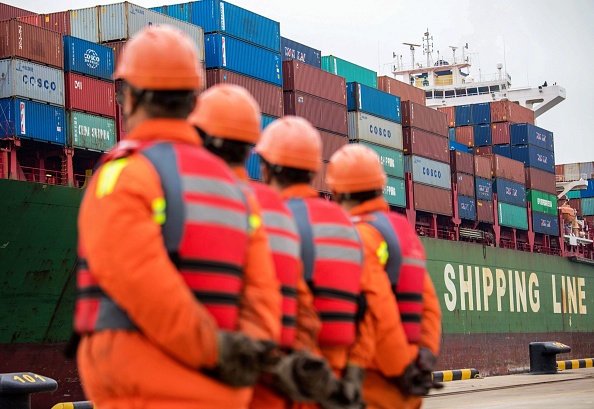China trade expo yields results as US deal hangs in balance

Trade deals worth $71bn (£56bn) were struck at the second China International Import Expo (CIIE) last week as Beijing sought to demonstrate its growing openness to the rest of the world, the country’s commerce ministry said today.
Read more: S&P 500 in fifth week of gains despite Donald Trump casting trade deal into doubt
The biggest of trade deals – that between the US and China – remains unresolved, however. Last week was marked by mixed messages from Washington about the rolling back of tariffs and uncertainty about when the promised “phase one” agreement would be signed.
China’s commerce ministry said the value of the deals signed at CIIE with companies around the world was 23 per cent higher than last year. It said 32 per cent were in manufacturing and 25 per cent from the wholesale and retail industry.
The week-long expo is the brainchild of China’s President Xi Jinping. Held in Shanghai’s enormous conference centre, it aimed to demonstrate China’s acceptance of foreign goods and competition.
China’s trading practices have long been in the sights of the US, which has now slapped tariffs on $550bn worth of Chinese products. In turn, China has tariffed $185bn of US goods.
After months of negotiations, the two sides said last week that they had agreed “phase one” of a trade deal. It involves China committing to buy large amounts of US farm goods and tightening protections of intellectual property in exchange for the rollback of some tariffs.
Investors took cheer, pushing up global stocks and taking the three major US indices to record highs.
Deal in question
But on Friday, US President Donald Trump threw the deal into doubt. “I haven’t agreed to anything,” he said, adding that reports about the rolling back of tariffs were inaccurate, although he did not elaborate further.
In a sign of divisions in the Trump administration, White House trade hawk Peter Navarro said journalists were being tricked by Chinese government “propagandists”.
Yet the broad consensus is that an agreement will be signed this year. Allan von Mehren, chief analyst at Danske Bank, said: “The timing of a phase one deal is uncertain and according to a US official it may stretch into December.”
He said that with the 2020 US presidential election approaching, Trump will be “quite anxious to get started as US farmers are hurting badly from the trade war, and farmers are key in the political swing states Ohio, Iowa and Wisconsin”.
China’s exports and imports fell in October, but by less than expected, official data showed on Friday.
Read more: WTO authorises China to impose $3.6bn in tariffs on US
Julian Evans-Pritchard, senior China economist at Capital Economics, said that even if a phase one agreement is reached, “it is unlikely to alleviate the main headwinds facing exporters and outbound shipments look set to remain weak in the coming months as a result”.
(Image credit: Getty)